PHOTOS: Indonesia’s forests
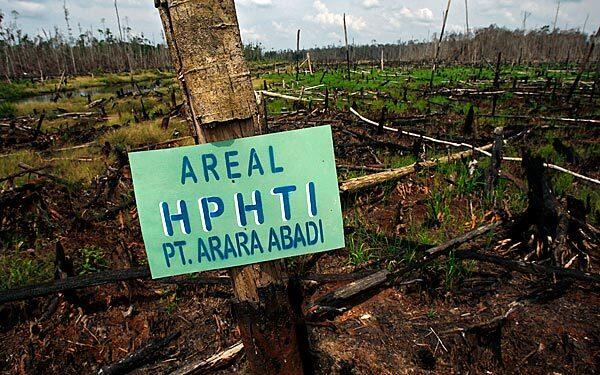
A signboard for the firm Arara Abadi hangs amid a deforested landscape on the road to the Kampar peninsula in Indonesia’s Riau province. Since 1982, about 30% of Riau’s natural forest has been cleared for palm oil plantations, 24$% for industrial pulpwood plantations and 17% percent has become wasteland. (Luis Sinco / Los Angeles Times)
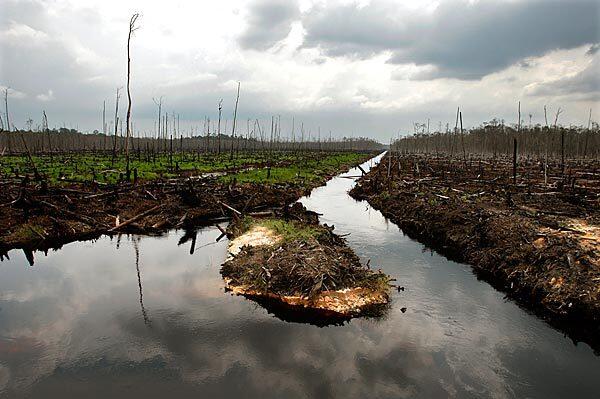
A canal drains water from a swath of peat land in Indonesia’s Riau province on Sumatra island. Peat lands contain large amounts of carbon, which is released into the air when fires are lighted to clear the area for plantations. (Luis Sinco / Los Angeles Times)
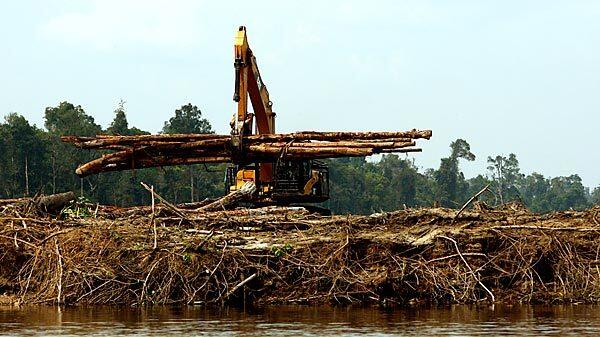
Logs are harvested from a cleared area on the banks of the Kampar River near Teluk Meranti in Riau province. Indonesia’s forests are being cleared at a faster pace than any other country, releasing massive amounts of carbon into the air, making it the worlds third-largest greenhouse gas polluter, behind the United States and China, experts say. (Luis Sinco / Los Angeles Times)
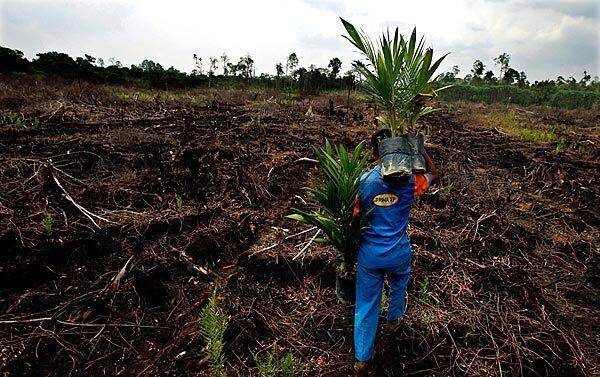
A worker carries palm seedlings to be planted on a burned swath of peat land in Riau province. Studies indicate that Indonesia’s carbon emissions are likely to increase as most future forest clearance will be in areas with deep peat, which releases greenhouse gases when it decomposes or burns. (Luis Sinco / Los Angeles Times)
Advertisement
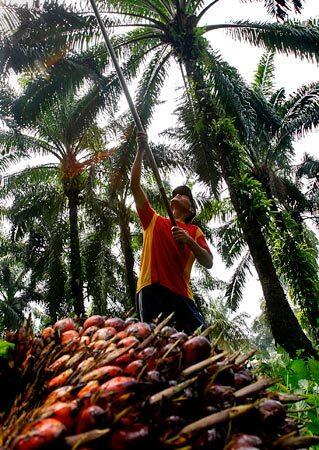
A plantation worker harvests clusters of palm oil nuts from a grove in Teluk Meranti in the heart of Sumatra that once was dense rain forest. The demand for palm oil, which is driving much of the deforestation in Indonesia, has risen in recent years because of increasing consumption of biofuels. (Luis Sinco / Los Angeles Times)
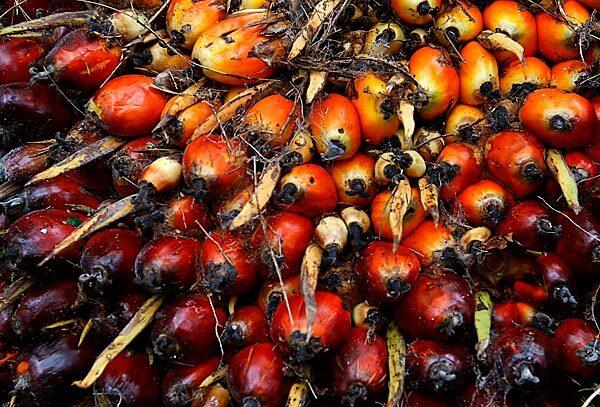
A cluster of palm oil nuts await shipment to a processing plant in Teluk Maranti on Sumatra island. Palm oil is used in cosmetics and food products and for biofuels. (Luis Sinco / Los Angeles Times)
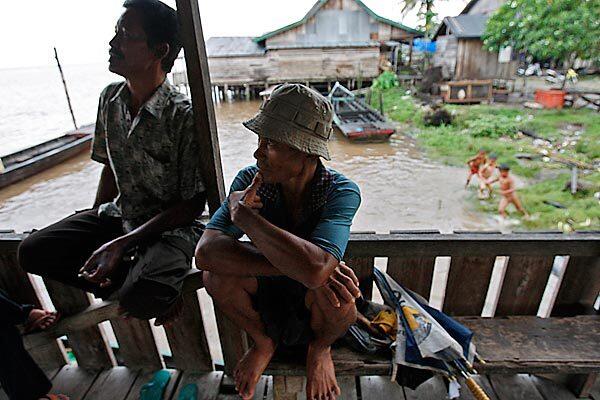
Residents of Teluk Meranti gather on the banks of the Kampar River to discuss a Singapore-based firms proposal to clear 1.7 million acres for an acacia plantation. The prospect of jobs and money is tempting to many in the poor fishing community. (Luis Sinco / Los Angeles Times)
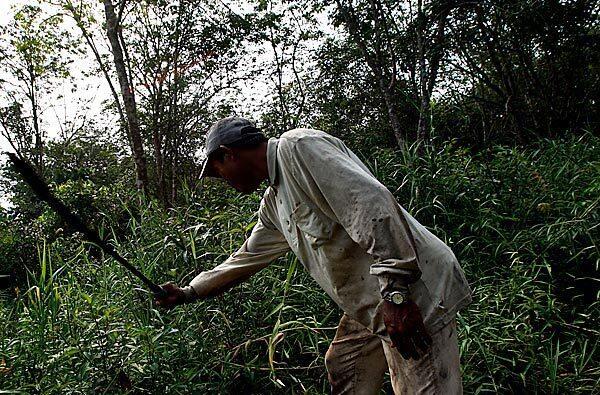
A villager uses a machete to cut a trail through the rain forest surrounding the remote settlement of Teluk Meranti, Indonesia. Across Sumatra island, scores of villages face a tough decision: whether to preserve their woodlands or allow companies to replace them with highly profitable pulp and palm oil plantations.If theres a company offering us money, even if its not a good company, if it can improve the quality of our life, why not do it? says one resident of Teluk Meranti. (Luis Sinco / Los Angeles Times)







